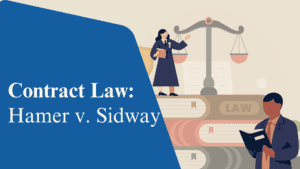
1. What is jurisdiction?
Jurisdiction is the authority of a court to hear and make judgement over a specific type of case. In other words, if a court has jurisdiction over a case, it can hear and render a verdict over this case. There are several types of jurisdiction, all of which are key to understanding how the jurisdiction of a court is determined. These technical terms will appear frequently whenever there is discussion about which law should apply or which court someone should go to.
2. What types of jurisdiction are there?
A. Subject matter jurisdiction
- This is when the court has the authority to hear a particular type of ‘subject matter’.
- For example, bankruptcy court can only adjudicate bankruptcy cases.
B. Territorial jurisdiction
- Territorial jurisdiction is the court’s power to bind the parties to the action within a specific geographic boundary.
- An example of territorial jurisdiction would be that the state of New York does not have jurisdiction over crimes committed in Delaware.
C. Personal jurisdiction
- Personal jurisdiction is a court’s jurisdiction over someone.
- Personal jurisdiction binds a person to a lawsuit.
- Personal jurisdiction determines which court has power over a party to require that party to appear for trial.
D. Diversity jurisdiction
- Diversity jurisdiction gives federal courts authority to adjudicate cases that do not involve federal question.
- Diversity jurisdiction exists when (1) parties involved reside or are doing business in different states, or (2) one of the parties is located outside of the U.S.
- In a federal diversity case, a controversy over $75,000 in damages is required.
- For example, if A from California has a monetary dispute of $100,000 with B from Delaware, then the federal courts will have diversity jurisdiction over the dispute.
E. Exclusive jurisdiction:
- Exclusive jurisdiction exists when there is only one specific court that can hear and decide the case.
- A good example of exclusive jurisdiction would be that only federal courts can hear patent or federal tax cases.
F. Concurrent jurisdiction:
- Concurrent jurisdiction happens when more than one court can hear a specific case.
- A classic example would be that A from Arizona is killed in a car accident by B from New York in California. In this incident, both state and federal courts can hear and adjudicate the case.
G. General jurisdiction
- A court with general jurisdiction can handle almost all kind of cases.
H. Limited jurisdiction
- A court with limited jurisdiction are authorized to hear only certain types of cases.
I. Appellate jurisdiction
- Appellate jurisdiction gives a court the authority to hear appeals from lower courts.
J. Universal jurisdiction
- Universal jurisdiction gives every state jurisdiction over any victims and perpetrators of grave crimes against international law, such as crimes against humanity, war crimes, genocide, and torture.
- Therefore, all states have jurisdiction over crimes against humanity, war crimes, genocide, and torture.
K. Treaty jurisdiction
- Jurisdiction based on treaties.
To know more about the basic types of the jurisdiction, check out the ‘Overview of the Types of Jurisdictions.’

3. Why does jurisdiction matter when it comes to the court system?
Knowing the jurisdiction not only helps you identify the court you should go to and the law that should apply to your case, it also provides you with the option to choose which court to go to. There are some instances where lawyers need to fight to get into a specific court that is most likely to render the best outcome.
To know more about how different types of jurisdiction can affect a case, check out ‘The 5 Types Of Jurisdiction That May Apply To Your Criminal Case.’

Comments
Pingback: The State Court System - CovertProfession - 4 4 CovertProfession 4 - 4 CovertProfession Legal & Business Studies 31 https://covertprofession.com